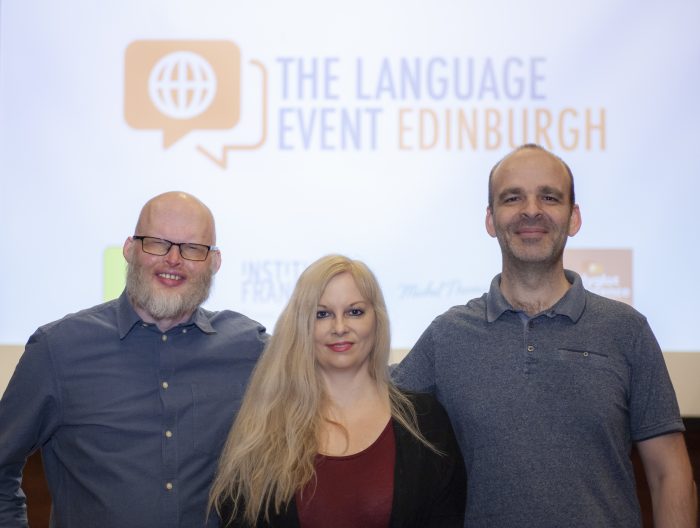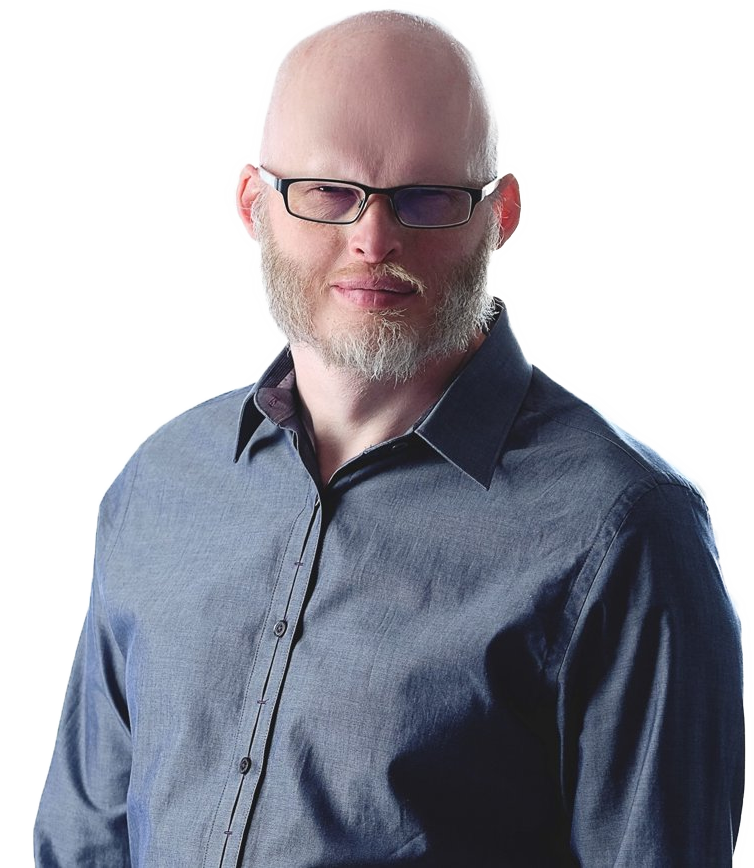The Year of The Manx Language: 2021
January 5, 2021 Leave your thoughts
In 2019 I was proud to be officially associated with the Year of Indigenous Languages with the Polyglot Conference.
Sometimes we hear about these “Year of X” and wonder why we need to do that for one specific thing, right? We see it in many areas of life where we think everyone should be equal and so what is the difference? We all have the same fighting chance after all, don’t we? Why not have The Year of The English Language? Or The English Language Festival? All languages matter!
Yes, all languages do matter…
Sadly not all languages have had the same history and are no longer at the same starting point. They need the spotlight on them to help bring them out of the shadows and show they are worthy of study. To create a fair playing field we need to level that playing field. I could write an entire piece just on this, but let’s leave that there for now.
Winning over the public with the benefits of bilingualism
The benefits of bilingualism for the human brain are the same regardless of the language combination. They only need to be the same modality of language.
The same modality?
My friend Thomas Bak at the University of Edinburgh researches neurolinguistics and the effects of multilingualism on the brain. He came to The Language Event in Edinburgh and talked about some of his work. It’s fascinating to listen to him. He’s a really engaging speaker and always popular with the audience. Feel free to take a break from my musings and come back to this blog post afterwards. It’s definitely worth a look!
After listening to Thomas speak I had a question about whether or not being bilingual with spoken English and British Sign Language (BSL) would count for the brain to have the same effect as a bilingual with two spoken languages. His answer was, “no”. Sign languages and spoken languages are different modalities of language. So for the positive neurolinguistic effects of bilingualism we need to use two spoken languages or two sign languages. Only then does it count towards the beneficial effects of added neuroplasticity researches find in their studies.
What does count though are all of these community, indigenous, vulnerable and endangered languages!
Why not just learn a more widely spoken language?
My philosophy has always been to learn languages that you can realistically use or have a connection with. If that is one of these more widely spoken languages, then that’s fine too. All I am saying is it’s good to keep the door open to other options, even if you only study enough to get by in them. Some naysayers poo-poo the advantages of supporting smaller, lesser spoken languages. Their reasoning is usually driven by economics or the say it’s a dying language that no one speaks anyway.
I get where they are coming from an economic point of view. But these communities are often thriving and just hidden away from view of people who don’t speak the language. Most people would naturally learn a more widely spoken language over languages spoken by fewer people because they are visible and easily linked to employment opportunities. There is logic to the argument. But completely ignoring the benefits of learning these lesser studied languages on the world stage is throwing the baby out with the bath water.
OK, so what are these languages of The Isles?
In Edinburgh, where Thomas spoke about his research, we used the weekend to get together and celebrate the Languages of The Isles. This included conversations about the following spoken languages:
- Scots
- English (Old English)
- Welsh
- Gaelic
- Irish
- Cornish
- Manx
As a native English speaker with Welsh heritage I was keen to speak Welsh to feel the connection to my roots. This is a common feeling for many people around the world. There is something truly cathartic about learning the language of your ancestors. Many groups in the USA, Canada, Australia and New Zealand form to learn their heritage languages for this very reason. I say good on them!
When you learn these languages it is amazing how easily you can plug into the new online worlds these communities have created. Online they truly thrive outside the physical location with speakers worldwide. Now that’s what I call a human connection.
In fact, learning these languages will most certainly give you a warm reception too. Many millions of people study the more widely spoken language and the locals are desperate to practise your language with you (particularly English, even if it’s not your first language) instead of speaking their own!
COVID-19 and Zoom
I came back from the Edinburgh event after the first weekend of March 2020. Right after I landed is when all of the restrictions started coming into place around Europe and elsewhere in the world.
Naturally I felt fortunate to have completed the trip safely. I was also wondering what was going to happen next.
It didn’t take long for my friend Irena to message me with news of a North Sámi course starting online. I had no plans for learning it before, but I am always one for grabbing opportunities when they come up, so I signed up. When do you get to study North Sámi in a group otherwise?
I loved exploring the language with our teacher, Ville. The other students were also really engaging in the Facebook group we had and it gave the whole thing a feeling of togetherness.
Linguistic awakening
Niggling in the back of my head was the calling for a deeper connection to the languages from my home: The Isles.
It didn’t take long for a Scots course to open up with Michael Dempster as teacher through the University of Edinburgh. It was brilliant. I felt really energised talking about a language I had heard growing up but never really learnt because the dominant culture and linguistic group devalued it, scoffing that was merely “bad English”. My fellow student and friend, Dave, made a video about it and included a chat with me about the experience:
Learning Scots reawakened in me the love for the linguistic diversity in the varieties of English spoken in The Isles, particularly my own original Scouse. It’s so colourful and simply brimming with expressions. Some of those turns of phrase and grammatical differences from English we have in Scouse are also found in Scots!
The Celtic connection
The connection for me felt stronger than ever. Another friend of mine, Maureen, messaged me to tell me about some courses coming up in Cornish and Gaelic. I could not resist, so I signed up to those too. I was really taken with both languages. Cornish is more closely related to Welsh, so there are many free words and grammatical concepts there for me. Gaelic has a few too, but definitely not to the same degree as Cornish.
It was becoming difficult for me to resist the pull of Irish. I even tried studying it for a month alongside Gaelic via the FutureLearn course. I simply found the two language too similar to keep them separate at this stage, so I made a conscious decision to leave Irish for now and to come back to it later.
Wasn’t this meant to be about Manx?
2021 is the Year of The Manx Language. Now I have always felt a pull towards The Isle of Man. It’s an island that I saw on the local weather forecast growing up. We had some news from there too on local TV channels. People in my region of the UK also talked about the island and some had relatives there. We also went there on school trips by boat. If you have not been to The Isle of Man, then I recommend a visit when you can get there safely.
Having the experience with Irish I was debating whether or not to study any Manx this year at all. But I have decided to throw caution to the wind and go for it. After all I always tell other people the very same thing. I will simply follow the Manx year-long 1000 words in Manx challenge for now to build up some vocabulary. It’s similar enough to Gaelic to be recognisable and hopefully noticing the differences will help me to retain it. The key thing is that I am not going to worry about it too much. It’s my fun extra thing to do.
Christopher Lewin is a Manx speaker and he joined us in Edinburgh to talk about the language:
So let’s celebrate the Manx Language in style and learn a bit of Manx in 2021, even if it’s just some basic phrases!
Reach out to me if you fancy joining me in this challenge or if you have studied it already. I’d love to hear from you!
If you are interested in any of the languages of The Isles, then here are links for you to find out more about them and learn them for FREE!
Manx: https://www.learnmanx.com
Cornish: https://gocornish.org, https://cornish-language.org & https://www.kesva.org/kdl
Welsh: https://learnwelsh.cymru
Scots: https://www.scotslanguage.com/Education/Learning_Scots
Irish: https://www.futurelearn.com/courses/irish-language
Gaelic: https://learngaelic.net & https://www.progressivegaelic.com
BSL: https://www.british-sign.co.uk
It’s worth adding in a link to the book by our speaker on Old English, Mark Atherton: https://library.teachyourself.com/id004325519/Complete-Old-English
If you sign up for italki and buy a coupon for language lessons through them, you can use the Promo Code below at checkout to get $5 OFF your order! So a $10 coupon costs you just $5! Use Promo Code: RICHARD
Categorised in: Uncategorized
This post was written by Richard
